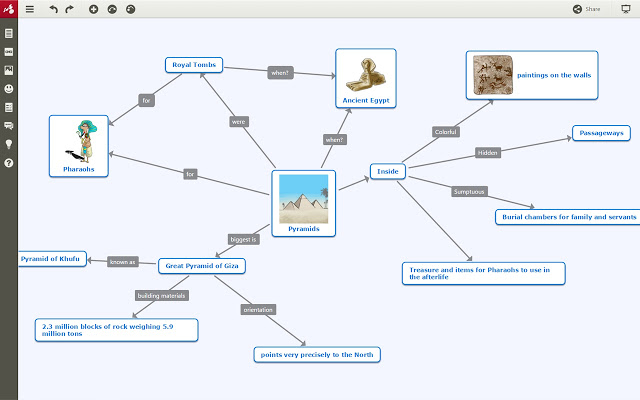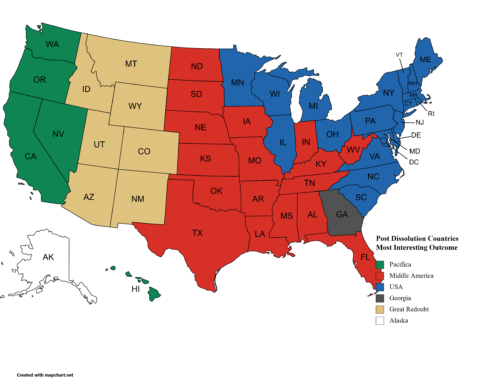Ideas. The best leaders live in the realm of ideas. Facts and details are great and necessary. But connecting ideas is what advances business and humanity.
You’ve heard me say often that the senior leader’s job is to stay above the daily fray and focus on the long-term vision and strategy (see here). I also contend that it is important to stretch your limits as a leader and why it is important to think beyond your knowledge set (see here).
How comfortable are you saying “I don’t know” or “what do I need to know to understand this better?” If you think you know all you need to know on a subject, don’t be surprised when your people leave to look for a more dynamic leader to work for. Being good at what you do now is only a bare minimum requirement for a leader. You have to think about where you’re taking your organization and you can’t do that without connecting ideas.
The more senior you rise in any field the more important it is for you to be open to changing your mind when new evidence is presented. Better yet, you should always be looking for evidence to falsify what you think you know. The longer you search before you find that falsifying evidence, the more comfortable you can be in your knowledge of your business. But if you never look for new evidence that challenges your thinking, you’re setting yourself up for the classic pie-in-the-face when something pops up to derail your operation that was always there, but you didn’t know about it.
Steve Levitt and Stephen Dubner of Freakonomics (http://freakonomics.com/) fame say that the single greatest mistake leaders make is ignoring evidence. Maria Popova, the brilliant thinker and connector at Brain Pickings (http://www.brainpickings.org/) says you should “allow yourself the uncomfortable luxury of changing your mind.” And I have said more times than I can remember that truth isn’t good or bad, it just is. Furthermore, truth doesn’t change based on the rank of the recipient.
Whether it is senior managers learning social psychology, biologists learning physics, or military planners learning sociology, nobody in any field operates in a vacuum. You can only learn more about any field and how it relates to other fields by connecting with people and ideas outside your own cocoon. Gone are the days of super specialization in a given field. If you cannot explain how you relate to the world around you, then you will probably be replaced by someone who can.
So what can you do as a senior leader? There is a science and an art aspect to this leadership journey. The science aspect is sticking to your functions as a leader and boss. The art is what you do with that function.
First, you have to prioritize inquiry and learning new things as part of your job, no matter what level you work at and in what field. Remember what I said in the first link above. Your job as leader is to avoid the enticement of being a doer. You hire a great team of doers to get the job done. Your task is the strategy to determine what that job is. How do you ensure you are not missing anything in that strategy? Read. Make reading part of your business day. Have the courage and discipline to read on the job what will make you better in your job. If you are a senior leader and your day is too filled with day-to-day tasks and management of operations to read or inquire, then you are not properly delegating.
Next, what kinds of things should we read? This is where you get to make your own idea and connections art. Pick up a book you have heard people talking about, or listen to a podcast you’ve been recommended, or open a magazine you’ve noticed on the reception table and dig in. If you allow yourself to do so, your mind will naturally take you to the next and the next and the next readings. If you don’t know where to begin, contact me and I’ll help you get started. Soon you’ll be passing your own recommendations on to colleagues and family alike.
Here are just a few recommendations I’ll offer that should pique your curiosity and help you make connections that you can at some point use in your work, regardless of industry segment. After all, this is about being better at leadership and strategy, not the details of your operations line.
Books:
Blink – Malcolm Gladwell
Freakonomics – Levitt/Dubner
A Short History of Nearly Everything – Bill Bryson
Ender’s Game – Orson Scott Card
Boyd – Robert Coram
Magazines:
The Atlantic
Wired
Cicero
The Economist
Nautilus
Podcasts:
99% Invisible
In Our Time
Invisibilia
The Art of Manliness
Give these recommendations a try. Then make a list of your own to develop yourself and the rising leaders who work for you. There is no complete, exhaustive or right/wrong list. The important thing is for you to expand yourself and make connections that take you and your business to the next level.
Finally, I recommend you getting yourself a mind mapper software program. There are expensive ones out there and there are free ones that I think are just about as good. The point is that when you think of something that connects with something else, there is tremendous power in visualizing your connections and manipulating them by moving them around and adding new connections to them. More on that another time.
Keep thinking…






Leave A Comment